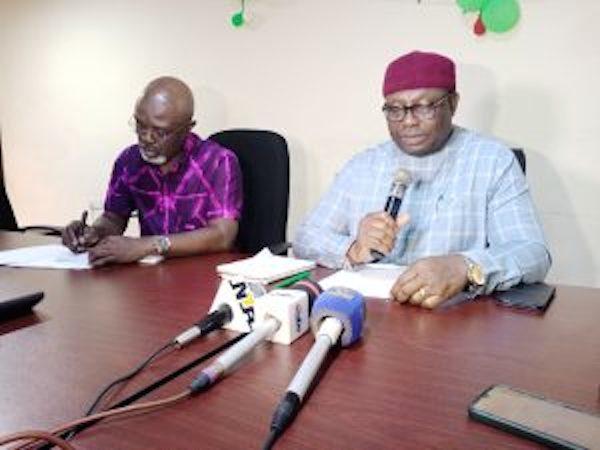
The United Nations Children’s Fund (UNICEF) has revealed that more than half of the children displaced by conflict in Northeast Nigeria are currently out of school.
The UNICEF Chief of Field Office in Borno State Joseph Senesie, made this statement during an event marking the 2025 International Day of Education at the University of Maiduguri, Borno State.
In his speech, Senesie addressed this year’s theme, “Artificial Intelligence (AI) and Education Preserving Human Agency in a World of Automation,” and highlighted the ongoing challenges in the Nigerian education system, especially in rural communities. Despite Nigeria’s strong embrace of education, Senesie stressed that significant gaps remain, particularly in areas where children lack access to quality education.
“As of today, more than half of all displaced children in Northeast Nigeria are out of school. For many, the right to education has yet to translate into the right to learn,” Senesie noted. He further emphasized that the International Day of Education offers an opportunity to reflect on the progress made in education worldwide, while acknowledging the substantial work still needed to reach the most disadvantaged children with inclusive and quality education.
The theme for the 2025 International Day of Education provided a platform for discussing how Artificial Intelligence can expand learning opportunities. Senesie explored both the challenges and opportunities presented by AI in education, which could help provide new avenues for children and youth, especially those impacted by conflict.
Senesie also outlined UNICEF’s ongoing efforts to improve education in Borno State, focusing on technology integration. Over the past two years, UNICEF has partnered with the Borno State government to enhance digital learning through initiatives such as the Nigeria Learning Passport. More than 30,000 teachers across 18 states have been trained in digital literacy and pedagogical skills. In Borno alone, over 102 teachers and 38,657 learners have actively participated in the digital learning platform.
He urged the Nigerian government and NGOs to further invest in technological solutions to education, stressing that digital learning is crucial for providing children with the knowledge and skills needed for a brighter future. “As the world evolves, digital platforms become crucial avenues for increased access to knowledge and skills acquisition,” Senesie emphasized, calling for more investment in digital learning.
UNICEF’s commitment to supporting children affected by over a decade of insurgency in the region remains steadfast. Senesie assured that UNICEF will continue to collaborate with the government, donors, and partners to ensure safe, quality education for children in conflict zones.
In his remarks, the Borno State Commissioner for Education, Lawan Wakilbe, encouraged students to embrace technology as part of their daily lives. “The future is technology. Every sector today has incorporated technology in one way or another. As leaders of tomorrow, you must start embracing and using it in your pursuit of excellence,” Wakilbe advised.





